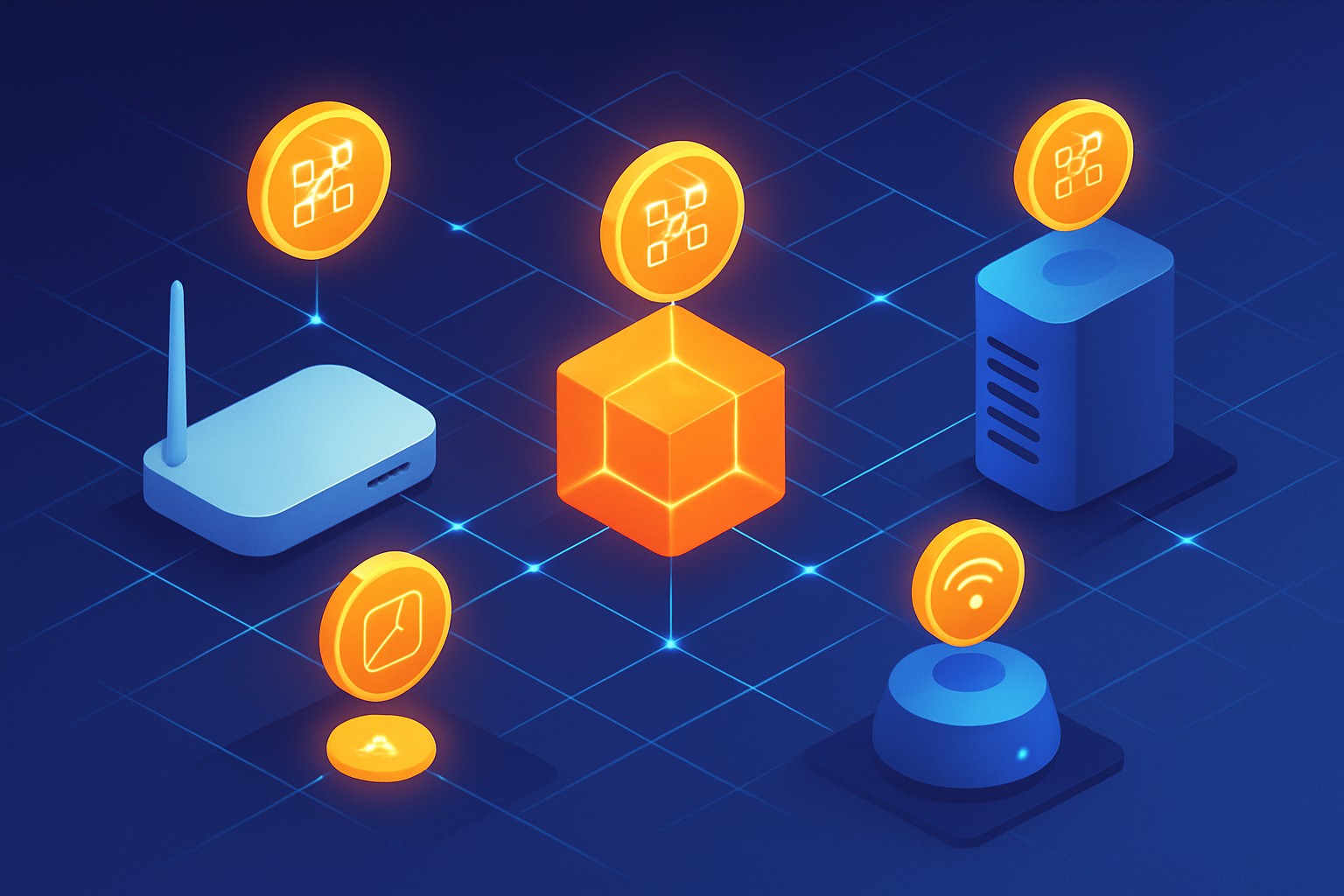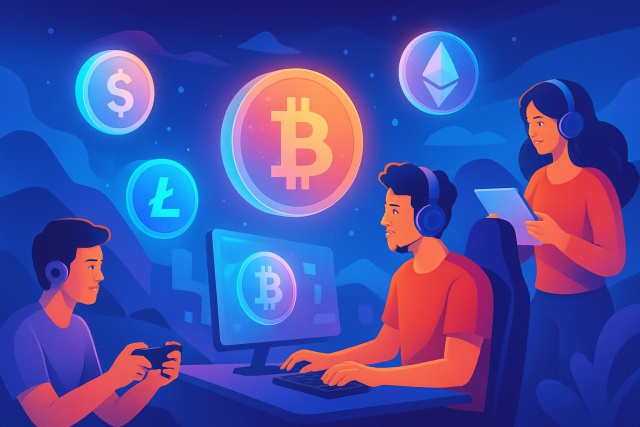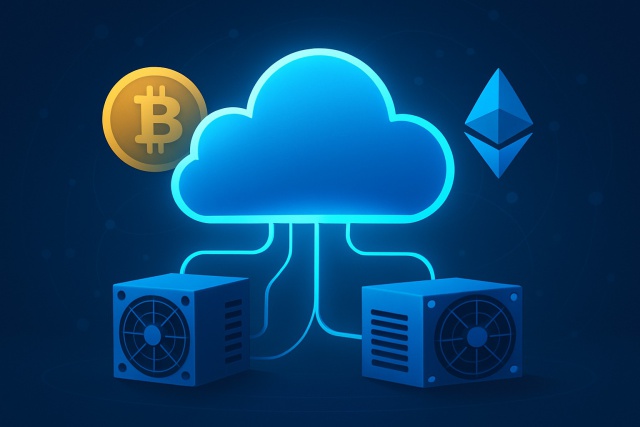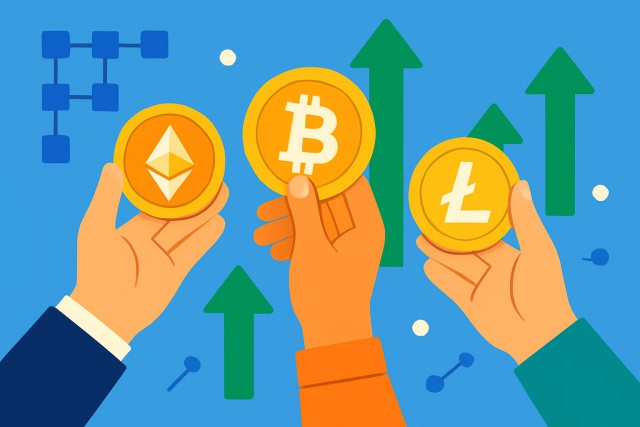What does DePIN Means in Cryptos?


DePIN crypto, short for Decentralized Physical Infrastructure Networks, is a fresh concept in the crypto world that ties blockchain technology directly to real-world assets. It shakes up how physical infrastructure is owned and managed—think of it as putting a new spin on an old game.
What Exactly Does DePIN Stand For Anyway
DePIN stands for Decentralized Physical Infrastructure Networks. These are networks where physical equipment—think wireless hotspots or storage devices—is owned and run in a decentralized fashion, often thanks to blockchain technology working behind the scenes.
Traditional infrastructure such as the internet or power grids is typically run by centralized companies or governments who own the hardware and call the shots when it comes to operations. DePIN flips this old-school model on its head by scattering ownership and control among a diverse crowd of participants worldwide, using crypto incentives as a kind of digital carrot to keep everyone motivated and involved.
Getting to Know DePIN with a Friendly Dive Into the Crypto World
DePIN leverages blockchain technology to decentralize not only data but also the very physical infrastructure powering digital services. By shifting ownership and management of infrastructure onto a blockchain, control gently slips out of the hands of central authorities and spreads across a broader network of participants. Cryptocurrencies play a starring role here, providing secure and transparent incentives along with governance tools that help communities and borders collaborate more smoothly to manage physical assets.
Tokens act like digital rewards within DePIN networks that nudge users to set up hardware, keep everything humming along nicely and get involved in governance decisions.
- Decentralization shifts control away from central authorities and puts it in the hands of the people who make up the network. It’s like handing over the keys to the kingdom but without the royal drama.
- Tokenization gives physical assets a digital twin that makes ownership clearer and creates nudges that get the economic gears turning.
- Consensus mechanisms act like the network’s referee. They confirm actions and enforce rules—no trust required just a fair game.
- Decentralized governance hands the steering wheel to the community and lets them call the shots instead of leaving decisions to a distant few.
- Transparency means everyone gets a front-row seat to audit and trust how the network ticks with no smoke and mirrors involved.
How DePIN Works Explained, Step by Step (With a Dash of Clarity)
DePIN uses blockchain to record and verify the physical infrastructure built by participants worldwide.
Participants set up physical nodes like wireless hotspots or storage devices and roll up their sleeves to get things running.
Each node is recorded on a blockchain to keep a trustworthy log of ownership and activity with no funny business allowed.
The network rewards contributors with tokens that mirror their performance and uptime, giving a pat on the back for a job well done.
Token holders can weigh in through decentralized voting and play an active role in steering the network’s future.
As more individuals jump on board, the network blossoms and boosts coverage and functionality in ways that really show.
A Few Noteworthy Examples of DePIN Projects in the Crypto Space
A bunch of projects really bring DePIN to life by cleverly merging crypto with the physical world. Take the Helium Network for example. It encourages people to set up wireless hotspots and weaves together a decentralized Internet of Things network. Then there’s Filecoin which rewards users who share their disk space and helps build a decentralized storage system brick by brick. These projects show that DePIN’s approach delivers tangible infrastructure and gives participants meaningful roles through token ownership and governance.
| Project Name | Physical Infrastructure Type | Token Used | Purpose | User Incentives |
|---|---|---|---|---|
| Helium | Wireless Hotspots for IoT | HNT | A Decentralized Wireless Network | Users rake in tokens by lending their network coverage—making connectivity a team effort |
| Filecoin | Distributed Storage Network | FIL | Decentralized Cloud Storage | Participants earn rewards by sharing disk space, turning spare storage into something valuable |
| DIMO | Connected Vehicles & Devices | DIMO | Decentralized Vehicle Data | Tokens come flowing as users share their vehicle sensor data, putting their rides to work in a new way |
| Nodle | Bluetooth Network for IoT | NODL | Global Bluetooth Connectivity | Users score tokens by providing network coverage, quietly powering a web of connected devices |
| Hivemapper | Decentralized Mapping Cameras | HONEY | Mapping and Geospatial Data | Rewards roll in for deploying data capture nodes, helping to paint a more detailed picture of the world |

Advantages of DePIN in the Crypto World
Let's dive into the perks of DePIN—it's like the trusty sidekick shaking up the crypto scene. From bringing fresh transparency to cutting down on middlemen, DePIN has a knack for making things smoother and a bit more exciting. Whether you are a crypto newbie or a seasoned pro, these advantages are definitely worth a closer look.
DePIN offers a bunch of neat benefits for network security, transparency and access. Scattering physical infrastructure far and wide nixes single points of failure and reduces the need to lean on central authorities. Token incentives give people everywhere a reason to jump in and own a piece of the core infrastructure—a pretty empowering twist.
- Decentralization helps lower the chance of outages by cutting out those pesky single points of failure.
- Token rewards usually give people a nice nudge to deploy and keep infrastructure humming along.
- Ownership of infrastructure becomes way more accessible to individuals across the globe, leveling the playing field.
- Blockchain transparency builds trust by laying out open and clear ledger records for all to see.
- Community governance often sparks fresh ideas and encourages shared decision-making, making the whole process feel more connected.
Challenges and Limitations Surrounding DePIN Navigating the Bumps in the Road
DePIN holds a lot of promise, it does face a few bumps along the road—like the steep upfront costs for hardware setup and the ongoing grind required for maintenance. Regulatory rules are still a bit of a wild card, especially since we are dealing with both physical infrastructure and cryptocurrencies in the same breath. The ups and downs in token prices tend to throw a wrench in participant incentives and shake the overall stability of the network.
- Hardware reliability can be a bit of a wildcard and often plays a big role in how smoothly the network actually runs.
- Network latency remains a stubborn headache, especially since the physical gear is scattered all over the place.
- Navigating regulatory requirements usually gets tricky when you mix crypto with traditional infrastructure.
- The ups and downs in token markets can throw a real wrench in the incentive models.
- Keeping everyone on the same page across a decentralized crowd is no walk in the park and brings its own share of operational challenges.
While centralized systems often get credit for their efficiency and predictability, DePIN throws a curveball by trading off a bit of speed in exchange for something far less common: a remarkable level of community ownership and innovation that really stands out for its resilience and democratic spirit.
Few Friendly Ways to Get Your Feet Wet with DePIN Crypto Projects
If you are curious about DePIN projects, a great place to kick things off is by diving into active networks that really align with what you care about. Usually, you’ll need the right hardware or some tokens to get your foot in the door. Hanging out in community forums can be a real lifesaver, offering nuggets of wisdom and a bit of camaraderie as you navigate the scene.
Start by zeroing in on DePIN projects that really click with your goals and fit your neck of the woods.
Grab the necessary hardware or snag the project tokens you will need to jump in.
Dive into the project’s online communities—it's the best way to stay in the loop and pick up some insider tips.
Consistently set up or run physical nodes to keep the network humming along smoothly.
Keep a regular check on your token rewards and do not be shy about getting involved in governance decisions.
Taking a Closer Look at DePIN’s Role in the Ever-Evolving World of Cryptocurrencies
DePIN crypto looks poised to grow hand in hand with advances in blockchain technology and the increasing demand for physical infrastructure. Developments like the expansion of IoT and more energy-efficient hardware boost its effectiveness. Progress in blockchain scalability and clearer regulations will shape how broadly it gets adopted and woven into everyday use.
- Integrating with IoT devices opens up a new world of network capabilities and makes things run smoother than you might expect.
- Improvements in energy-efficient hardware are on track to reduce operational costs.
- Solutions focused on scaling blockchain often pack a punch by significantly boosting transaction throughput. This is no small feat.
- Teaming up with traditional infrastructure providers is a smart move that helps build hybrid networks blending the old and the new.
- Regulatory changes could finally clear the fog and bring much-needed legal clarity for those adopting DePIN, making life a bit easier all around.
Start Your Crypto Journey with Coinbase Today
Ready to enter the cryptocurrency market but unsure where to begin? Coinbase makes buying, selling, and storing digital assets simple and secure for beginners and experts alike.








